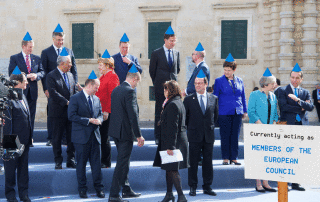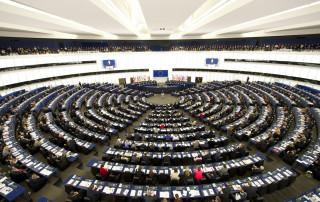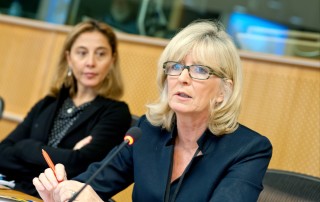EMPODERANDO AL PERIODISMO A TRAVÉS DEL DERECHO DE ACCESO A LA INFORMACIÓN
EL MANUAL ‘LEGAL LEAKS’ AYUDA A PERIODISTAS A OBTENER
INFORMACIÓN USANDO LAS LEYES DE ACCESO A LA INFORMACIÓN
Why is the right of access to information important for journalism?
A Guide for Journalists on How to Access Information
The Legal Leaks Toolkit, developed by Access Info Europe and n-ost, helps journalists access information using Access to Information laws. The Toolkit is available in a generic international version and can be adapted to the legal framework of any country. The existing national versions, translated into local languages, are available below. You can also read more below about our training programme and about how to contact
the Legal Leaks Help Desk.
Why do media experts think access to information is important?
Journalists, activists, and media experts speak about the importance of access to information in their daily work. Watch all interviews here!
That little detail in the relationship between journalists and sources, that little one, is so important that could change the way in which we tell stories.
It is extremely important that there is this mechanism that you can use as a journalist to say «Hang on a minute, you need to give us this, because we have a right to know».
It’s a great way to get stories, it’s a great way to fin out what governments in particular are doing, it’s a great way to find out where money goes, it’s a great way to prove accountability.
The right of access to information is very important for the journalists’ work; it’s important for everyday work, but it’s even more important for investigations.
Journalism is about investigation, it’s about asking questions; but it’s about documents as well, as a proof for questions, as a proof for answers
Basically, I need access to information to do my job as someone who is supposed to ensure the accountability of politicians, of public officials.
Cover photo: European Parliament via Flickr (CC BY-NC-ND 2.0)
ÚLTIMAS NOTICIAS SOBRE EMPODERANDO AL PERIODISMO
One year later: what we (still don’t) know about the EU-Turkey agreement and accountability
Madrid, 18 March 2017 - As I sat at the Access Info Europe offices on the 1st of March reading the latest Order of the General Court of the European Union, I could not help but shake my head every other minute in disbelief. In a case brought by an Afghan refugee threatened with expulsion from Greece against the European
Parliament inaction on lobby transparency could sink register reform
[Article first published by the ALTER-EU] Madrid/Brussels, 17 March 2017 - The European Parliament must do more to improve lobby transparency, 100 civil society organisations urged in an open letter published today. MEPs were warned that the European Commission's current proposal for a revised EU Transparency Register would allow for even less scrutiny than the existing one, and that to
The risks of transparency in times of rising populism
Freedominfo.org | 16/03/2017 Inglés - It’s not often that your own colleagues working on democracy issues actually question the wisdom of pressing for greater transparency, but this has happened to me a few times lately. Most recently, I’ve been asked about the wisdom of pursuing Access Info’s high profile campaign to get the European Commission to publish the travel expenses
Enquiry about legislative transparency in the Council welcomed by Access Info
Madrid, 14 March 2017 – Access Info Europe today expressed concern over insufficient record keeping in the Council of the EU and welcomed the launch of the European Ombudsman’s strategic enquiry into transparency of one of the EU’s key decision making institutions. A focus of the Ombudsman’s enquiry is whether the Council is complying with a 2013 judgment of the
El Gobierno gasta 25 millones de euros en asesores a dedo para los ministros
El País | 14/03/2017 Español - El primer Gobierno de Mariano Rajoy gastó al menos 25,6 millones de euros en contratar asesores eventuales para sus ministerios. Esa fue la cantidad que destinó entre 2012 y 2015 a pagar los sueldos de trabajadores que no pasan por ningún proceso selectivo para ocupar puestos retribuidos con más de 60.000 euros brutos de
The risks of transparency in times of rising populism
[Article first published by the UNCAC Coalition Blog] Helen Darbishire, Executive Director Madrid, 10 March 2017 - It’s not often that your own colleagues working on democracy issues actually question the wisdom of pressing for greater transparency, but this has happened to me a few times lately. Most recently, I’ve been asked about the wisdom of pursuing Access




